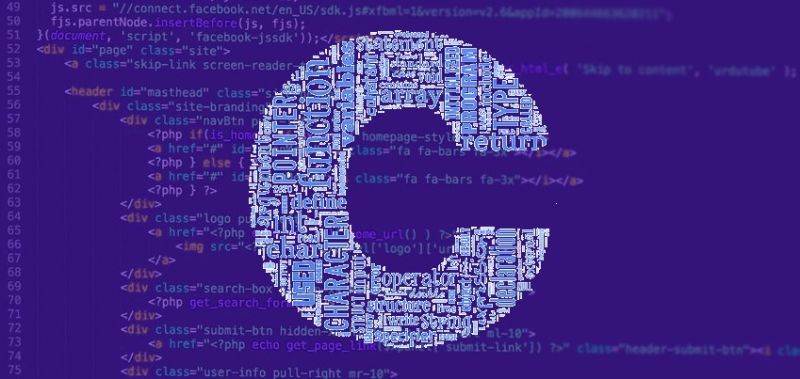
Milat Institute Of Management And Technologies
SUBJECT: C Programming
Syllabus
Course Objectives: The course will enable students to:
|
CLO1 |
Write algorithms, flowcharts and programs. |
|
CLO2 |
Implement different programming constructs and decomposition of problems into functions. |
|
CLO3 |
Use and implement data structures like arrays and structures to obtain solutions. |
|
CLO4 |
Define and use of pointers with simple applications. |
|
CONTENTS |
No. of Hours / RBT levels |
|
Module 1 INTRODUCTION TO C PROGRAMMING
Introduction to Computing: Introduction, Art of Programming through Algorithms and Flowcharts (Chapter 1) Overview of C: History and importance of C, Basic structure of C program, executing a C program. (Chapter 2) Constants, Variable and Data Types: Introduction, Character Set, C Tokens, Keywords and Identifiers, Constants, Variables, Data Types, Declaration of Variables, Assigning Values to Variables, Defining Symbolic Constants. (Chapter 3) Managing Input and Output Operations: Reading a Character, Writing a Character, Formatted Input, Formatted Output. (Chapter 5) Operators and Expressions: Introduction, Arithmetic Operators, Relational Operators, Logical Operators, Assignment Operators, Increment and Decrement Operators, Conditional Operator, Bitwise Operators, Special Operators, Arithmetic Expressions, Evaluation of Expressions, Precedence of |
08 L1, L2 |
|
Arithmetic Operators, Type Conversions in Expressions, Operator Precedence and Associativity. (Chapter 4) |
|
|
Module 2 CONTROL STRUCTURES
Decision Making and Branching: Introduction, Decision Making with IF Statement, Simple IF Statement, the IF-ELSE Statement, Nesting of IF-ELSE Statements, The ELSE IF Ladder, The Switch statement, The ? : Operator, The goto statement. (Chapter 6) Decision Making and Looping: Introduction, The while Statement, The do statement, The for statement, Jumps in LOOPS. (Chapter 7) |
08 L1, L2, L3 |
|
Module 3 INTRODUCTION TO ARRAYS AND STRINGS
Arrays: One-dimensional Arrays, Declaration of One-dimensional Arrays, Initialization of One-dimensional Arrays, Example programs- Bubble sort, Selection sort, Linear search, Binary search, Two-dimensional Arrays, Declaration of Two-dimensional Arrays, Initialization of Two-dimensional Arrays, Example programs-Matrix Multiplication, Transpose of a matrix. (Chapter 8) Character Arrays and Strings: Declaring and Initializing String Variables, Reading Strings from Terminal, Writing Strings to Screen, Arithmetic Operations on Characters, String-handling Functions, Example Programs (with and without using built-in string functions) (Chapter 9) |
08 L1, L2, L3 |
|
Module 4 FUNCTIONS AND INTRODUCTION TO POINTERS
User-defined Functions: Need for functions, Elements of User-defined Functions, Definition of Functions, Return Values and their Types, Function Calls, Function Declaration, Category of Functions, No Arguments and no Return Values, Arguments but no Return values, Arguments with Return Values, No Arguments but Returns a Value, Passing Arrays to Functions, Recursion, The Scope, Visibility and Lifetime of variables. (Chapter 10) Pointers: Introduction, Declaring Pointer Variables, Initialization of Pointer variables, accessing a Variable through its Pointer, Pointer Expressions, Pointer Increments and Scale Factor. (Chapter 12) |
08 L1, L2, L3 |
|
Module 5 STRUCTURES AND FILE MANAGEMENT
Structures: Introduction, Defining a structure, declaring structure variables, accessing structure members, structure initialization, array of structures. (Chapter 11) |
08 L1, L2 |
|
File Management in C: Introduction, Defining and opening a file, closing a file, Input/output and Error Handling on Files. (Chapter 13) |
|
Course Outcomes: Upon successful completion of this course, student will be able to
|
21CSE13.1 |
Describe the fundamentals of C programming Language. |
|
21CSE13.2 |
Apply appropriate Control structures to solve problems. |
|
21CSE13.3 |
Describe the concept of Arrays and Strings. |
|
21CSE13.4 |
Write User defined functions and apply concept of recursion to solve problems. |
|
21CSE13.5 |
Describe the concept of Pointers and Structures. |
|
21CSE13.6 |
Implement functions towards performing operations on Files. |
E. Balaguruswamy, “Programming in ANSI C”, 8th Edition, 2019, McGraw Hill Education, ISBN: 978-93-5316-513-0.
1. Pradip Dey, Manas Ghosh, “Programming in C”, 2nd Edition, 2018, Oxford University Press, ISBN: 978-01-9949-147-6.
2. Kernighan B.W and Dennis M. Ritchie, “The C Programming Language”, 2nd Edition, 2015, Pearson Education India, ISBN: 978-93-3254-944-9.
3. Yashavant P. Kanetkar, “Let Us C”, 16th Edition, 2019, BPB Publications, ISBN: 978- 93- 8728-449-4.
4. Jacqueline A Jones and Keith Harrow, “Problem Solving with C”, Pearson Education. ISBN: 978-93-325-3800-9.
5. Dr. Guruprasad Nagraj, “C Programming for Problem Solving”, Himalaya Publishing House. ISBN-978-93-5299-361-1.